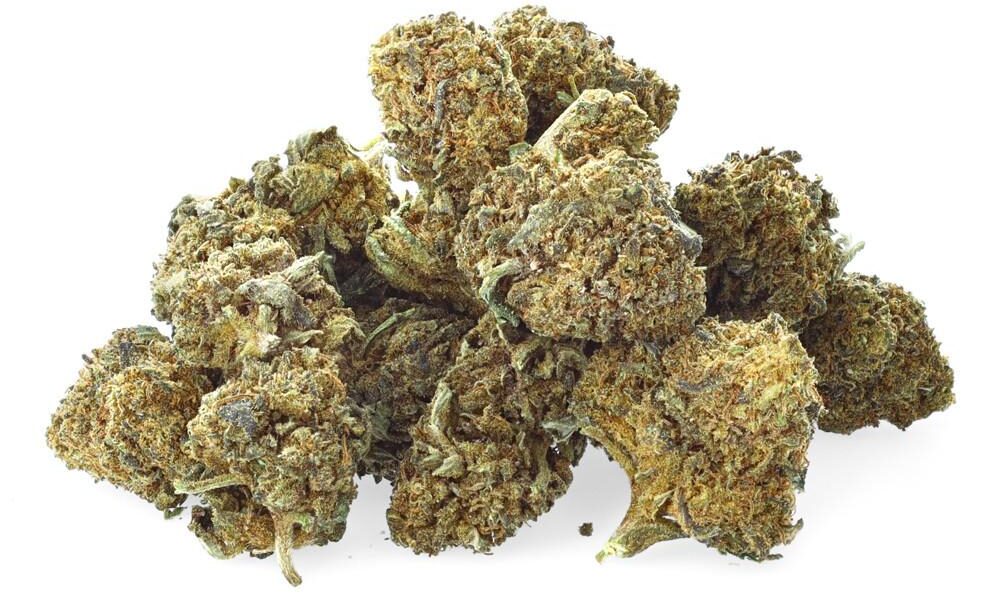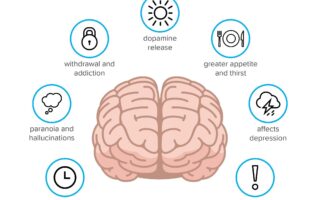The Hidden Shadows of Green: A Closer Look at Cannabis
In recent years, the use of cannabis has transcended from underground culture to mainstream acceptance, with an increasing number of states and countries legalizing its recreational and medicinal use. The allure of this green herb, often portrayed as a natural remedy with seemingly endless benefits, has captivated many. However, beneath the haze of popular narratives lies a complex tapestry of potential drawbacks often overlooked in the fervor of its rise. This article seeks to peel back the layers of cannabis, exploring the reasons why, despite its growing popularity, weed can have detrimental effects on physical health, mental wellbeing, and sociocultural dynamics. By examining the less glamorous aspects of cannabis use, we aim to foster a balanced dialogue that illuminates both its charm and the caution that comes with it.
Table of Contents
- The Impact of Cannabis on Mental Health
- Understanding the Risks of Dependency and Addiction
- Exploring the Effects of Cannabis on Cognitive Function
- Evaluating Long-term Consequences on Lung Health and Overall Well-being
- Q&A
- Wrapping Up
The Impact of Cannabis on Mental Health
Cannabis consumption has gained popularity, yet its effects on mental well-being raise important concerns. Research indicates that while some users report temporary relief from anxiety or depression, long-term use can contribute to a myriad of mental health issues. Regular consumption can lead to changes in brain chemistry, impacting neurotransmitters such as serotonin and dopamine, which are crucial for mood regulation. This alteration may manifest in various ways, including:
- Increased anxiety: For some, marijuana can exacerbate feelings of paranoia and anxiety rather than alleviate them.
- Depression: Chronic users might experience a decrease in motivation and energy, potentially leading to depressive symptoms.
- Psychosis: Higher THC levels in cannabis have been linked to increased risk of psychotic disorders, particularly in predisposed individuals.
The relationship between cannabis and mental health is complex and multifaceted. Factors such as genetics, frequency of use, and age of first exposure all play significant roles. In particular, adolescents and young adults may be at greater risk due to ongoing brain development. Understanding this risk is crucial; a study suggests that early initiation of cannabis can lead to lasting cognitive deficits and increased susceptibility to mental disorders. This underscores the importance of educating users about potential consequences. Some key findings include:
| Age of First Use | Potential Mental Health Impact |
|---|---|
| Before 18 | Higher risk of anxiety and depression in adulthood |
| After 25 | Lower associated risks of mental health issues |
Understanding the Risks of Dependency and Addiction
Dependency and addiction are often insidious and can arise even from seemingly benign substances like cannabis. Many individuals may start using weed for recreational purposes or to cope with stress; however, over time, reliance on the substance can develop. This can lead to various psychological and physical challenges, including diminished motivation, exacerbated anxiety, and potential disruptions in daily life. Recognizing the signs of dependency can be crucial:
- Increased tolerance
- Withdrawal symptoms when not using
- Neglecting responsibilities
Moreover, the brain’s reward system becomes altered, leading to cravings that can overshadow personal goals and relationships. This vicious cycle can make it increasingly difficult to break free, as individuals may use cannabis to alleviate symptoms that it might initially have helped address. To illustrate the social impacts related to addiction, consider the following table:
| Impact | Description |
|---|---|
| Social Isolation | Withdrawal from friends and family in favor of substance use. |
| Work Performance | Decline in productivity and reliability. |
| Mental Health Issues | Increased anxiety and depression symptoms. |
Exploring the Effects of Cannabis on Cognitive Function
The debate surrounding cannabis and its impact on cognitive abilities is complex and multifaceted. Scientific research has shown that regular cannabis use, particularly during adolescence, may lead to long-lasting changes in brain function. Users may experience impairments in the following areas:
- Short-term memory: This is often the most immediately noticeable effect, resulting in difficulties in recalling recent events or information.
- Attention span: Cannabis can diminish one’s ability to focus on tasks, which may negatively affect academic or professional performance.
- Decision-making: Regular users may find their judgment impaired, leading to riskier behavior and poor life choices.
Furthermore, studies suggest that prolonged use, especially among young adults, could lead to cognitive decline. A recent analysis showed a potential link between heavy cannabis consumption and reduced overall IQ over time. To illustrate this point, the following table outlines some cognitive effects associated with varying levels of use:
| Frequency of Use | Potential Cognitive Effects |
|---|---|
| Occasional | Mild short-term memory loss |
| Regular | Noticeable attention deficits and impaired judgment |
| Heavy | Significant cognitive decline and increased risk of addiction |
Evaluating Long-term Consequences on Lung Health and Overall Well-being
While cannabis may offer short-term relief for some conditions, its long-term impact on lung health is a critical concern. Regular use can lead to chronic respiratory issues, as the inhalation of smoke—regardless of the substance—introduces harmful toxins into the lungs. Over time, users may experience a range of complications, such as:
- Coughing and wheezing: Persistent symptoms that can interfere with daily activities.
- Increased mucus production: This can lead to blockages and hinder lung function.
- Bronchitis: Frequent inflammation of the airways can become problematic.
- Reduced lung capacity: This affects the body’s overall ability to take in oxygen.
Additionally, the consequences extend beyond the lungs, influencing overall well-being. Prolonged cannabis use is often correlated with issues that can significantly affect quality of life, including:
- Impaired memory and cognitive function: Long-term memory issues can arise from regular use.
- Anxiety and depression: The paradox of using cannabis for mental relief yet potentially intensifying symptoms.
- Social and interpersonal challenges: Altered behavior might strain relationships and affect work performance.
| Long-term Consequences | Impact on Health |
|---|---|
| Chronic Bronchitis | Frequent coughing and mucus production. |
| Higher Respiratory Rate | Increased effort to breathe. |
| Reduced Exercise Capacity | Difficulty participating in physical activities. |
| Cognitive Decline | Memory issues and impaired decision-making. |
Q&A
Q&A: The Downsides of Cannabis Use
Q: What are some of the most significant health risks associated with marijuana use?
A: While cannabis is often lauded for its medicinal benefits, it’s important to consider the potential health risks. Regular use can lead to respiratory issues due to inhaling smoke, akin to the effects of tobacco. Moreover, it may impair cognitive functions, particularly in adolescents whose brains are still developing. Studies have linked heavy use to anxiety, depression, and even long-term mental health disorders in vulnerable populations.
Q: Can marijuana impact your motivation or productivity?
A: Yes, many people report a phenomenon often referred to as “amotivational syndrome,” where heavy use of cannabis can diminish motivation and focus. Users might find it challenging to engage in activities they once enjoyed or struggle with completing tasks. This can lead to a cycle of procrastination and decreased productivity, affecting both personal and professional life.
Q: Is there a risk of addiction with marijuana?
A: Absolutely, while the addiction potential of cannabis is often underestimated, research suggests that about 9% of users will develop a dependency, and this number increases to 17% among those who start using in their teens. Withdrawal symptoms can include irritability, insomnia, and cravings, making it difficult for some individuals to quit.
Q: What are the implications of cannabis use on academic performance?
A: Cannabis can impair short-term memory and cognitive function, which are crucial for learning and academic success. Studies have shown that frequent users may experience lower grades and reduced academic motivation. This can detract from a student’s overall educational experience and future opportunities.
Q: Does marijuana impact driving ability?
A: Indeed, driving under the influence of cannabis poses significant risks. THC, the active compound in marijuana, can impair motor skills, reaction times, and cognitive judgment, all crucial for safe driving. Drivers may overestimate their abilities, increasing the chances of accidents. Laws in many areas reflect this risk, with strict penalties for driving under the influence.
Q: Can cannabis use affect social relationships?
A: Yes, it can. Regular use may alter social interactions and lead to conflicts, particularly if one person’s behavior changes significantly due to their cannabis use. Friends and family members might feel concerned or alienated, leading to strained relationships. Furthermore, users may prioritize cannabis over social engagements, potentially isolating themselves.
Q: Are there any hidden dangers of marijuana use that people might overlook?
A: Certainly. One oft-overlooked danger is the potential for cannabis products to be laced with harmful substances when acquired from unregulated sources. Additionally, the increasing potency of cannabis products can lead to unintentional overdosing, resulting in severe anxiety or paranoia. It’s also important to consider the potential legal implications if using in areas where cannabis is still prohibited.
Q: How can individuals make informed decisions about cannabis use?
A: Awareness is key. Individuals should research and understand the effects, both short-term and long-term, assessing their personal health and lifestyle. Open conversations with healthcare professionals can help clarify misconceptions and provide guidance. Ultimately, informed decisions stem from recognizing the balance between potential benefits and the risks involved.
In sum, while cannabis may offer certain benefits, it carries a range of risks that warrant thorough consideration. Understanding these dangers helps individuals make choices that align with their health and well-being.
Wrapping Up
As we close the chapter on the multifaceted discussion surrounding the impacts of cannabis use, it becomes clear that the effects of weed are not as black and white as the stigma that often accompanies it. While many advocate for its medicinal properties and social acceptability, it is essential to consider the other side of the coin. From cognitive impairments and dependency issues to potential mental health risks, the evidence suggests that cannabis can pose significant challenges for certain individuals. As we navigate the evolving landscape of marijuana legality and social norms, it is crucial for consumers to weigh these considerations thoughtfully. Understanding that awareness and moderation play key roles in any substance use—be it alcohol, caffeine, or cannabis—can guide us toward healthier choices. knowledge empowers us to make informed decisions, striking a balance between individual freedom and responsible usage. Thank you for exploring this important topic with us—stay curious, stay informed.



